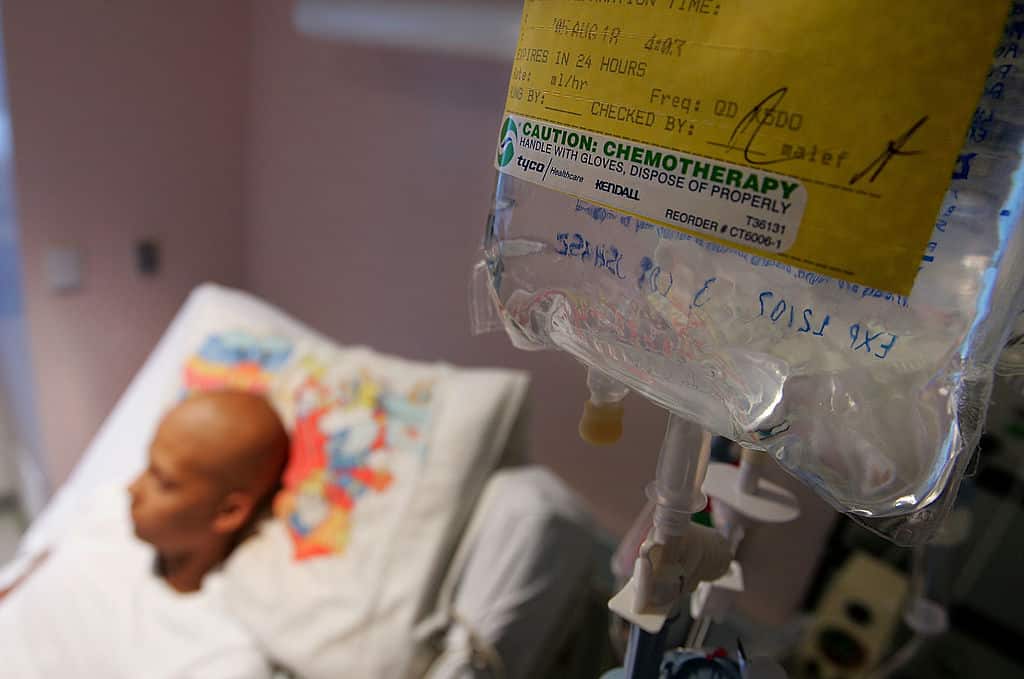TOPLINE
Cancer is on the rise among younger people and scientists don’t really know why, according to research published in BMJ Oncology on Tuesday, an unexplained trend that threatens to strain already stretched healthcare systems and upends much of what we thought we knew about the disease.
KEY FACTS
While cancer still tends to be more common among older people, the number of cancers among people younger than 50—when it is considered to be “early-onset cancer”—has risen over the past three decades, according to the peer reviewed analysis of health data.
Globally, there were 1.82 million new cancer diagnoses and 1.06 million deaths from cancer among under 50s in 2019, the researchers said, respectively a 79% and 28% increase from figures in 1990.
Early-onset cancers of the windpipe and prostate rose most steeply between 1990 and 2019, the researchers found, climbing an estimated 2.28% and 2.23% each year, respectively.
Breast cancer—the most common type of cancer worldwide excluding non-melanoma skin cancer—was responsible for the largest number of cases and associated deaths among younger people, the researchers said, with rates of 13.7 cases and 3.5 deaths per 100,000 people.
Deaths increased most sharply among people with kidney or ovarian cancers and, following breast cancer, cancers of the windpipe, lung, stomach and bowel exacted the highest death toll.
The researchers noted that while rates of early-onset cancer were a concern globally, the rate of new cases in 2019 were highest in wealthy countries in North America, Western Europe and Australasia and lower income countries in Central Asia, Eastern Europe and Oceania suffered disproportionately high death rates.
WHAT TO WATCH FOR
Given trends over the past three decades, the researchers predict new early-onset cancer cases and associated deaths will increase an additional 31% and 21%, respectively, by 2030. People in their 40s are likely to be the most at risk, the researchers said.
Forbes Daily: Get our best stories, exclusive reporting and essential analysis of the day’s news in your inbox every weekday.Sign Up
By signing up, you accept and agree to our Terms of Service (including the class action waiver and arbitration provisions), and Privacy Statement.
CRUCIAL QUOTE
Writing in a linked editorial, researchers from the Center for Public Health at Queen’s University Belfast said the findings “challenge perceptions of the type of cancer diagnosed in younger age groups” and “serves as a warning for future burden on healthcare systems” that are still recovering from the Covid-19 pandemic. Given the risks to people aged between 40 and 49, public healthcare systems should consider expanding screening programs, they said.
WHAT WE DON’T KNOW
It is still something of a mystery as to why cancer cases are on the rise among younger people. In essence, cancer is a disease of uncontrolled cell proliferation, with cells growing and spreading to other parts of the body. It happens when the genetic information in our cells responsible for keeping cell growth in check is damaged, which explains why it is more common in older people who have had more time to acquire these mutations. Many factors influence the risk of getting cancer, including genetic predispositions, exposure to certain viruses and environmental factors like pollutants, diet, exercise and the use of drugs like alcohol and tobacco and the researchers said there is no single explanation for the rise in early-onset cancers over the past three decades. Better detection through screening and medical system improvements, such as cervical cancer screening in the U.S., could explain part of the increase, the researchers said. Other factors like changing lifestyles, particularly increased rates of obesity and physical inactivity, as well as environmental pollution could also account for some of the increase, they said.
TANGENT
The researchers found that the rates of some early-onset cancers decreased over the three decades studied. New cases of early-onset liver cancer fell by an estimated 2.88% every year, the researchers said, the steepest decline of the cancers studied.
BIG NUMBER
10 million. That’s roughly how many people died of cancer in 2020, according to the World Health Organization. Collectively, cancers accounted for nearly one in every six deaths. The WHO said around one-third of these are due to preventable factors like tobacco use, high body mass index, alcohol consumption, a diet poor in fruit and vegetables and physical inactivity.
FURTHER READING
Cancer Will Cost U.S. $5.3 Trillion By 2050, Researchers Estimate (Forbes)
